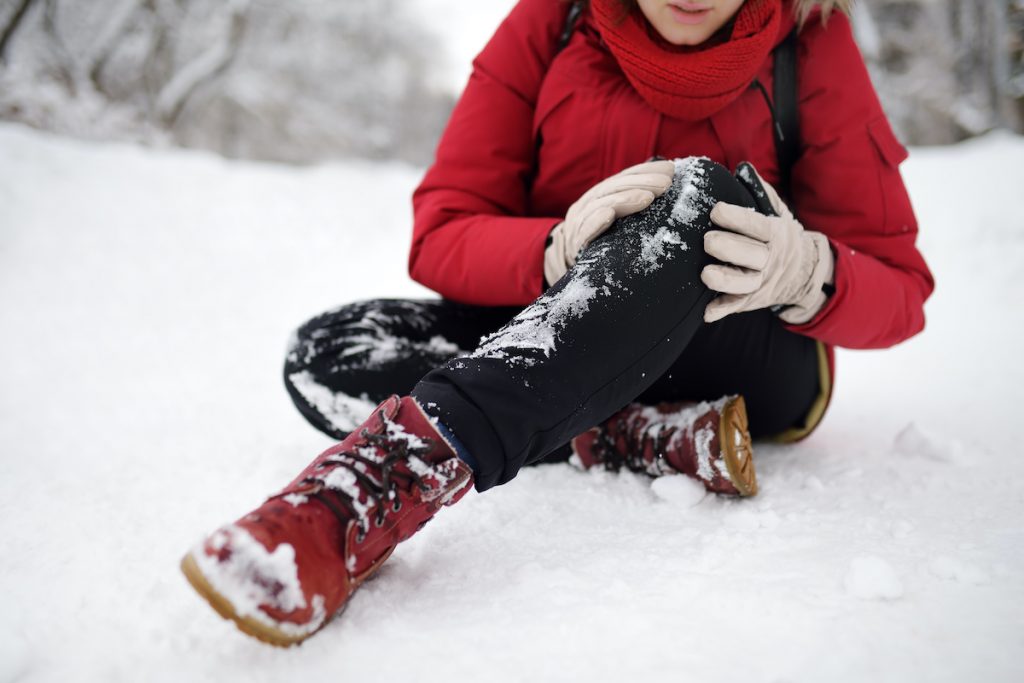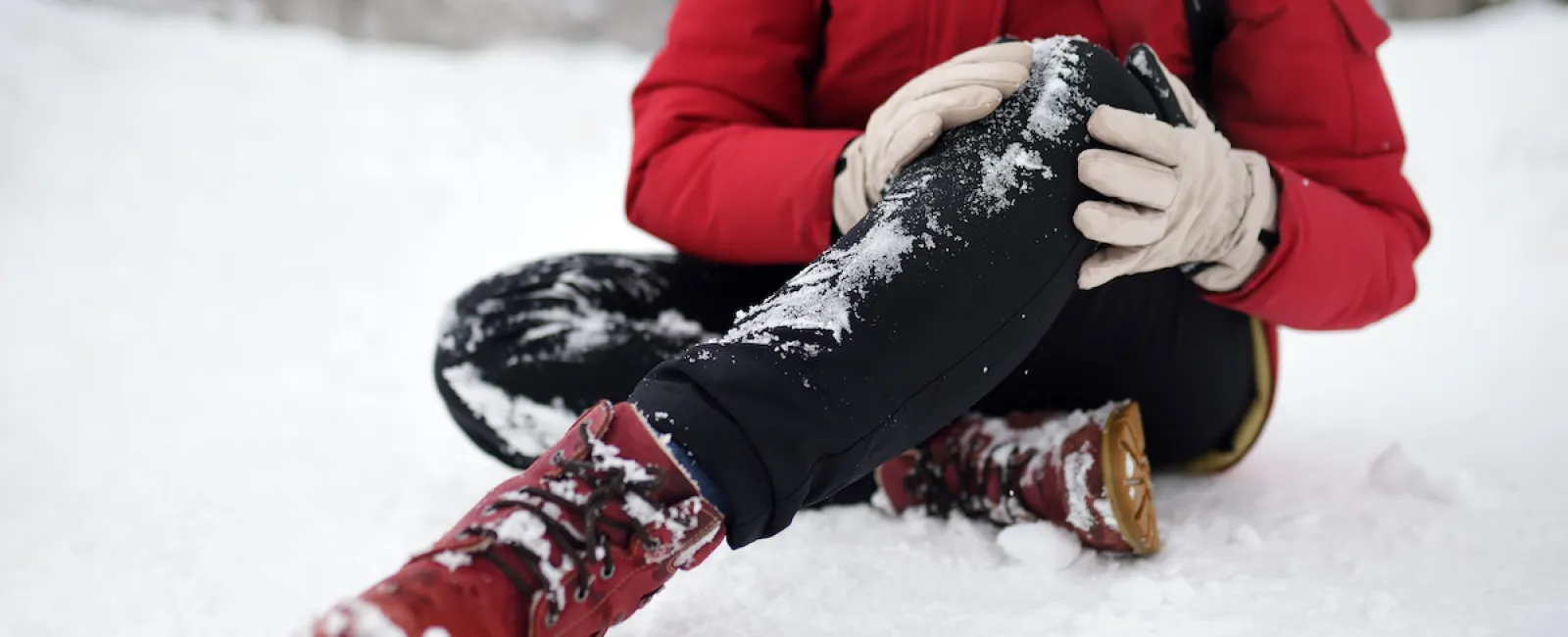
Snow, sleet, and other icy conditions are often inconvenient. They can also be dangerous and cause a variety of common winter injuries. Let’s look at some of those injuries and how you can avoid them.
Common Winter Injuries
Of course, it’s possible to sustain all kinds of injuries any time of the year. However, the effects of winter weather create the perfect conditions for certain types of injuries. There are some winter injuries like burns or frostbite that we won’t touch on because they aren’t related to your musculoskeletal system.
The most common orthopedic winter injuries reported include:
- Back Injuries
- Knee Pain
- Neck Pain
- Shoulder Injuries\
Causes of Common Winter Injuries
There are several factors that contribute to common winter injuries. Often winter injuries are caused by slips and falls, automobile collisions, winter sports, and other winter activities.
Slip and Fall
Slick, ice-covered sidewalks, driveways, and stairs make slips and fall injuries more common during wintertime. Injuries from falls include bruising, head injuries, brain injuries, concussions, ankle sprains, muscle strains, and broken bones. Winter conditions make people of all ages more vulnerable to these injuries. However, health factors like osteoporosis and osteoarthritis make these common winter injuries potentially more serious for seniors.
Car Accidents
Winter means increased car accidents due to icy and slippery roads: According to data from the National Highway Traffic Safety Administration, 17 percent of all vehicle crashes happen due to winter weather conditions. These crashes can result in many different types of injuries. One of the most common is whiplash, which occurs when your head forcefully whips back and forth, causing a neck injury. Collisions can cause other types of orthopedic trauma like fractures and dislocations.
Winter Sports Injuries
From ice hockey to downhill skiing, many popular winter sports have a very real risk of injury. This combined with the presence of ice in many of these sports, and you can easily understand the prevalence of winter sports injuries.
The majority of these common winter injuries are fractures, breaks, sprains, strains, and dislocations. Often, they result from people not using proper technique, form, or equipment–or from overexerting themselves beyond their capabilities
Other Injuries
Things like snow shoveling or lifting heavy objects (like when you are hauling holiday decorations in and out of storage) can cause winter injuries as well. Exercising outdoors can also present a risk due to colder temperatures and potentially icy conditions (as mentioned above). The most common injuries caused by winter chores are herniated discs, ruptured discs, sprains, and strains.
Preventing Common Winter Injuries
If you’re careful and take the right precautions you can greatly reduce your chances of experiencing a winter injury. These tips can help you avoid getting hurt this winter/
Avoiding Slips and Falls
- Concentrate on where you’re walking. Take your time and walk slowly.
- Avoid slippery surfaces, such as wet leaves, icy areas, and snowbanks.
- Wear shoes or boots with good treads – waffled, ridged, or heavily textured soles. Carry your work shoes with you and change into them once you get to the office.
- Use handrails to prevent falls.
- After you come home, make sure you haven’t tracked snow and slush into your entrance hall and stairs.
- Use salt or sand on your driveway and stairs outside your home to increase traction.
- Wear a hat – not only will it insulate you from the cold, but it can help cushion your head from the impact of a fall.
- People who run in the winter should be advised to use properly cleared and salted trails and sidewalks, so they don’t risk slipping and falling.
Avoiding Car Accidents
- Have proper winter-grade tires installed on your car
- Pay attention to weather advisories and avoid driving during bad conditions when possible
- Store an ice scraper in your car
- Keep windshield washer fluid full
- Have your vehicle inspected, especially breaks
- Have a winter safety kit in your trunk, including a high-visibility safety vest, gloves and jumper cables
- Keep a first aid kit in your car
- Never drive without a cellphone
- Limit the time spent driving in the dark
Avoiding Sports Injuries
- Wear protective gear appropriate for your sport, including goggles, helmets, gloves, and padding.
- Wear proper footwear that provides warmth and dryness, as well as good ankle support.
- Before skiing or snowboarding, take at least one lesson to learn how to fall correctly and safely.
- Wear wrist guards when snowboarding, to lessen the impact on your wrists if you fall.
Avoiding Other common Winter Injuries
- Before shoveling or scraping, make sure to properly stretch
- Stretch before performing any physical exercise
- Stay hydrated while exercising and shoveling snow
- Ensure proper footing when shoveling snow or scraping ice off the car
- Listen to your body and do not over-exert yourself or lift things that are too heavy for you to safely carry.
Contact South Shore Orthopedics
The team at South Shore Orthopedics is dedicated to helping patients with a variety of orthopedic conditions. Our board-certified physicians have experience in a number of orthopedic specialties including fracture care, orthopedic trauma, joint replacement, and sports medicine. If you have an orthopedic injury this winter call our office at (781) 337-5555 to make an appointment
